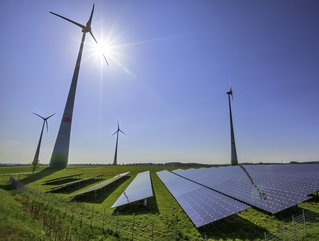Africa to be turned into a renewables powerhouse

Africa is to be turned into a solar powerhouse, as part of an ambitious new project.
The details of the “Desert to Power Initiative” have been outlined as part of the Paris Agreement climate change talks at COP24 in Katowice, Poland this week. The Initiative aims to develop and provide 10 GW of solar energy by 2025 and supply 250 million people with green electricity including in some of the world’s poorest countries.
Energy poverty in Africa is estimated to cost the continent 2-4 % GDP annually, according to the African Development Bank (AfDB), which is leading the project, which will connect 90 million people to electricity for the first time, lifting them out of ‘energy poverty’.
Currently, 64% of the Sahel’s population - covering Senegal, Nigeria, Mauritania, Mali, Burkina Faso, Niger, Chad, Sudan, and Eritrea - lives without electricity, a major barrier to development, with consequences for education, health and business.
SEE ALSO:
- Google announces plans to build green energy data centre in Denmark
- Cimarex to acquire Delaware Pure-Play Resolute for $1.6bn
- Equinor outlays $84mn on minority shareholding in Scatec Solar ASA
- Click here to read the latest issue of Energy Digital
By harnessing the exceptional solar resource in the region, AfDB and its partners hope to transform the region.
Magdalena J. Seol in the AfDB’s Desert to Power Initiative said: “Energy is the foundation of human living – our entire system depends on it. For Africa right now, providing and securing sustainable energy is in the backbone of its economic growth. A lack of energy remains as a significant impediment to Africa’s economic and social development.”
Construction of the project will also create jobs and help attract private sector involvement in renewable energy in the region. Many women-led businesses currently face bigger barriers than men-led enterprises to accessing grid electricity - so the project has the potential to increase female participation in economic activities and decision-making processes.
The project has been launched in collaboration with the Green Climate Fund, a global pot of money created by the 194 countries who are party to the UN Framework Convention on Climate Change (UNFCCC), to support developing countries adapt to and mitigate climate change. The program is designed to combine private sector capital with blended finance.






